 W
WAlexander V, of the Bagrationi Dynasty, was King of Imereti from 1720 his death in 1752, with the exceptions of the periods of 1741 and 1746–1749.
 W
WPrince Alexander, also known as Tsarevich Aleksandr Archilovich Imeretinsky was a Georgian royal prince (batonishvili) of the Kingdom of Imereti. He lived as an émigré in the Tsardom of Russia and subsequently served as first General of the Artillery (Feldzeugmeister), the second highest military rank under Tsar Peter the Great. During the Great Northern War, Alexander was taken prisoner at Narva in 1700 and spent ten years in Swedish captivity. He died on his way back to Russia.
 W
WAlexander, son of Bakar or Aleksandr Bakarovich Gruzinsky (1726–1791) was a Georgian royal prince. Born in Russia into the Mukhrani branch of the Georgian royal dynasty, Alexander is known for his unsuccessful attempt to reclaim the crown of Georgia from his dynastic relatives ruling Eastern Georgia. At the request of Heraclius II, Alexander was deported back to Russia where he was held in confinement by the Russian authorities until his death. In Russia, Alexander bore the surname of Gruzinsky, meaning "Georgian".
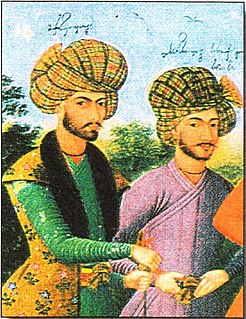 W
WGivi Amilakhvari (1689–1754) was a Georgian nobleman (tavadi) with a prominent role in the politics of eastern Georgia in the first half of the 18th century. He waged a lengthy struggle against the Ottoman and Iranian encroachments, changing sides and forging various alliances as he tried to preserve autonomy for his native kingdom of Kartli as well as to prevent the ascendant Bagrationi dynasty of the neighboring Georgian kingdom of Kakheti from seizing the throne of Kartli. In the closing years of his turbulent life, Amilakhvari stood by his erstwhile Kakhetian foes and sponsored several construction projects across the country.
 W
WPrincess Ana Gruzinsky-Golitsyna was a Georgian royal princess (batonishvili) of the Bagrationi dynasty of Mukhrani branch.
 W
WPrincess Anastasia of Georgia was a Georgian princess royal (batonishvili), a daughter of King Heraclius II of Georgia of his third marriage to Darejan Dadiani. She was married into the princely family of Eristavi, former Ducal House of Ksani.
 W
WAnton I ; 28 October [O.S. 17 October] 1720 – 12 March [O.S. 1 March] 1788), born as Teimuraz Bagrationi, was the Catholicos–Patriarch of the Georgian Orthodox Church in the period 1744–1755 and again in 1764–1788.
 W
WAnton II the Great Martyr, born Prince Royal Teimuraz, was a member of the Georgian royal family and churchman. A son of Heraclius II, the penultimate King of Kartli and Kakheti, he was the Catholicos Patriarch of Georgia from 1788 to 1811.
 W
WPyotr Bagration was a Russian general and prince of Georgian origin, prominent during the Napoleonic Wars.
 W
WIoane was a Georgian prince (batonishvili), writer and encyclopaedist.
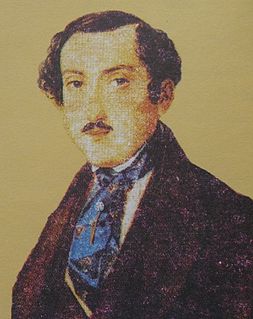 W
WOkropir known in Russia as Tsarevich Okropir Georgievich Gruzinsky, was a Georgian prince royal (batonishvili) of the Bagrationi Dynasty.
 W
WTeimuraz Bagrationi otherwise known as Tsarevich Teimuraz Georgievich was a Georgian royal prince (batonishvili) and scholar primarily known as an author of the first critical history in Georgian as well as for his work to popularize interest in the history and culture of Georgia and preserve its treasures.
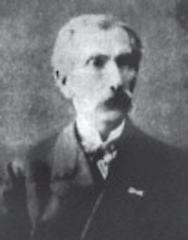 W
WBrothers Zubalashvili — a family of businessmen and benefactors. The Zubalashvili family gained prominence in the seventeenth century and established themselves as successful merchants conducting business throughout Asia and Europe. They helped Kings Vakhtang VI and Erekle II establish printing presses in Tbilisi in the 18th century. After the Russian annexation of Georgia, the Zubalashvilis developed a profitable trade network that covered Russia, the Ottoman Empire, India, and Persia. In the mid-19th century, they also began establishing the first industrial plants in Georgia.
 W
WPrince Garsevan Chavchavadze was a Georgian nobleman (tavadi), politician and diplomat primarily known as the Georgian ambassador to Imperial Russia.
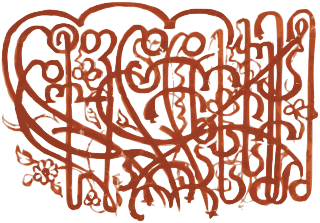 W
WMariam Dadiani was the last Queen Consort of the western Georgian kingdom of Imereti as the wife of King Solomon II. She was a daughter of Katsia II Dadiani, Prince of Mingrelia. After the Russian conquest of Imereti and Solomon's flight to the Ottoman Empire in 1810, Mariam fell in the hands of the Russian authorities who sent her in exile to Russia proper, where she was known as Maria Katsiyevna Imeretinskaya.
 W
WDarejan Dadiani, also known as Daria, was Queen Consort of Kakheti, and later Kartli-Kakheti in Eastern Georgia, as the third wife of King Erekle II. She was a daughter of Katsia-Giorgi Dadiani, a member of the princely house of Mingrelia. Darajan married Heraclius in 1750 and their marriage lasted 48 years until his death in 1798; the union produced 23 children. In the final years of her husband's reign, Darejan exerted significant influence on politics and court affairs. She was skeptical of the pro-Russian policies of Heraclius II and his successor, her step-son, George XII, whose progeny she tried to prevent from succeeding to the throne of Georgia. After the Russian annexation of Georgia, Queen Dowager Darejan was deported to Russia proper in 1803. She died in St. Petersburg at the age of 69 and was buried at the Alexander Nevsky Lavra.
David Bagrationi, also known as David the Regent, was a Georgian royal prince (batonishvili), writer and scholar, was a regent of the Kingdom of Kartl-Kakheti, eastern Georgia, from December 28, 1800 to January 18, 1801.
 W
WDomentius IV was the Catholicos Patriarch of Georgia from 1705 to 1724 and again from 1739 to 1741. He was a member of the royal Mukhrani branch of the Bagrationi dynasty, born as a younger son of Levan of Kartli and his first wife Tuta Gurieli. Domentius was energetically involved in the politics of Kartli and, according to some contemporary accounts, he even had regal ambitions. The split in his patriarchal tenure was due to his opposition to the accession of the Ottoman regime in Kartli and he spent thirteen years in the Ottoman captivity from 1725 to 1737. A man of letters, Domentius compiled a collection of Georgian hagiography. He also sponsored reconstruction and repair of several churches and monasteries in Georgia. His regnal name is sometimes given as Domentius III.
 W
WTimote (Timothy) Gabashvili (1703–1764) was a Georgian travel writer, traveler, diplomat, cartographer, religious and public figure. He was the first to describe the Georgian antiquities of Jerusalem on his visit to the Holy Land in the 1750s.
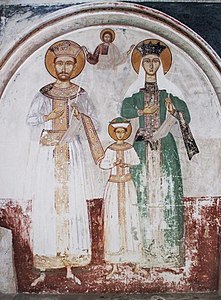 W
WGeorge VII, of the Bagrationi Dynasty, was King of Imereti in the periods of 1707–11, 1712–13, 1713–16, and 1719–1720.
 W
WGeorge XI, known as Gurgin Khan in Iran, was a Georgian monarch who ruled the Kingdom of Kartli as a Safavid Persian subject from 1676 to 1688 and again from 1703 to 1709. He is best known for his struggle against the Safavids which dominated his weakened kingdom and later as a Safavid commander-in-chief in what is now Afghanistan. Being an Eastern Orthodox Christian, he converted to Shia Islam prior to his appointment as governor of Kandahar.
 W
WGiorgi IV Dadiani was Prince of Mingrelia from 1691 to 1704 and from 1710 to 1715. Giorgi's accession to rulership, following his ouster of the First House of Dadiani, inaugurated Mingrelia's second Dadiani dynasty, stemming from the Chikovani clan. Giorgi was also known as Lipartiani (ლიპარტიანი) by virtue of having Salipartiano as a fief from 1682 to 1715. Giorgi was actively involved in a series of civil wars that plagued the western Georgian polities. He was eventually deposed by his own son and placed under house arrest.
 W
WGrigol was a Georgian royal prince (batonishvili) of the house of Bagrationi. A grandson of George XII, the last king of Georgia, and the only son of Prince Ioane of Georgia, he was briefly proclaimed as King of Georgia during a revolt against the Russian rule in 1812. After spending several months in a Russian prison, Grigol joined the Russian military ranks and took part in the 1813 Polish campaign. He is the author of several poems, memoirs, and a compilation of Georgian poetry.
 W
WPrince Davit Guramishvili was a Georgian poet who wrote the finest pieces of pre-Romantic Georgian literature. His poetic talents thrived far from his motherland, being forced by personal misfortunes and turmoil in Georgia to spend several years in the Russian military service until his retirement to his small Ukrainian estate at Myrhorod where he made eighty-seven years of his tragic and turbulent life into one cycle of autobiographical poetry, the Davitiani, which he sent to Georgia through a Georgian embassy returning from the Russian empire in 1787.
 W
WHeraclius II, also known as Erekle II and The Little Kakhetian, was a Georgian monarch of the Bagrationi dynasty, reigning as the king of Kakheti from 1744 to 1762, and of Kartli and Kakheti from 1762 until 1798. In the contemporary Persian sources he is referred to as Erekli Khan, while Russians knew him as Irakly (Ираклий). His name is frequently transliterated in a Latinized form Heraclius because both names Erekle and Irakli are Georgian versions of this Greek name.
 W
WIlia, also known as Elizbar (ელიზბარი), was a Georgian prince royal (batonishvili), a son of George XII, the last king of Kartli and Kakheti, by his second marriage to Mariam Tsitsishvili. After the Russian annexation of Georgia in 1801, Ilia accompanied his mother into exile to Russia. He then received military training and served in the Russian army, fighting with distinction at the battle of Borodino against the French in 1812 and retiring with the rank of colonel in 1823. He had 13 children of his marriage with Princess Anastasia Obolenskaya and his descendants, bearing the surname of Gruzinsky, have survived in the 21st-century Russian Federation.
 W
WIulon was a Georgian royal prince (batonishvili) of the House of Bagrationi, born into the family of King Heraclius II and Queen Darejan Dadiani. He advanced claim to the throne of Kartli and Kakheti after the death of his half-brother George XII in 1800 and opposed the Russian annexation of Georgia until being apprehended and deported in 1805 to Tula. He died in St. Petersburg and was buried at the Alexander Nevsky Lavra.
 W
WJoseph or Ioseb was a Georgian Orthodox hierarch, Metropolitan Bishop of Gelati (1760–1769), and Catholicos of Abkhazia (1769–1776). He was a younger son of King Alexander V of Imereti, of the Bagrationi dynasty. He was a major supporter of his brother, Solomon I of Imereti, in his efforts to consolidate royal authority.
 W
WKaikhosro III Gurieli was a member of the Georgian family of Gurieli, a princely dynasty of Guria. He was briefly Prince-regnant of Guria as a rival to his brother Giorgi IV Gurieli in 1716. In 1724, he emigrated to the Russian Empire, where he commanded the Georgian Hussar Regiment in the 1740s.
 W
WLevan, also known by his Muslim name Shah-Qoli Khan was a Georgian royal prince (batonishvili) and the fourth son of the king of Kartli Shahnawaz. He was a titular king of Kartli in 1709.
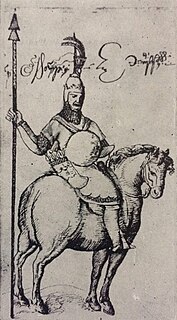 W
WMamia III Gurieli, also known as Mamia the Great Gurieli or the Black Gurieli, of the western Georgian House of Gurieli, was Prince of Guria from 1689 to 1714. Involved in civil wars plaguing western Georgia, he became King of Imereti three times in the years of 1701, 1711–1712, and 1713–1714. After his first reign as king for a year in 1701, he abdicated the throne of Imereti, being unable to tolerate the influence of his father-in-law Giorgi Abashidze. Subsequent periods of his royal career was the result of a feud with Giorgi VII of Imereti. Mamia died while still sitting on the throne of Imereti, which then reverted to his rival Giorgi VII.
 W
WMirian was a Georgian prince (batonishvili) of the Bagrationi dynasty, born to King Heraclius II and Queen Darejan Dadiani. After Heraclius placed his kingdom under the Russian protectorate in 1783, Mirian entered the Russian army, attaining to the rank of major general. He reconciled with the Russian annexation of Georgia in 1801, departing to St. Petersburg, where he ended his days as a senator of the Empire. Of some literary talent, Mirian translated from Russian and himself composed poetry.
 W
WNino was a Georgian princess royal (batonishvili) as a daughter of King George XII of Georgia and princess consort of Mingrelia as the wife of Grigol Dadiani, Sovereign Prince of Mingrelia. After the death of her husband in 1804, Nino was a regent for her underage son, Levan until 1811, and helped bring Mingrelia and Abkhazia, a neighboring principality of her in-laws, under the hegemony of the Russian Empire. In 1811, she retired to Saint Petersburg, where she died at the age of 75.
 W
WPrince Sulkhan-Saba Orbeliani was a Georgian writer and diplomat. Orbeliani is noted in part due to his important role as an emissary of Georgia to France and the Vatican, where he vainly sought assistance on behalf of his beleaguered King Vakhtang VI.
 W
WParnaoz was a Georgian prince (batonishvili) of the Bagrationi dynasty, the 14th son of Heraclius II, the penultimate king of Kartli and Kakheti, by his third marriage to Queen Darejan Dadiani. Parnaoz tried to challenge the recently established Imperial Russian rule in Georgia and in 1804 headed an unsuccessful insurrection of the Georgian mountaineers in the course of which he was arrested and deported to Russia. Afterwards, he spent most of his life in St. Petersburg, becoming the first Georgian translator of the 18th-century French philosopher Jean-Jacques Rousseau.
 W
WPrince Alexander of Georgia (1770–1844) was a Georgian royal prince of the Bagrationi family, who headed several insurrections against the Russian rule in Georgia. He was known as Eskandar Mīrzā (اسکندرمیرزا) in the Persian Empire, Tsarevich Aleksandr Irakliyevich in Russia, and as Alexander Mirza in Western Europe.
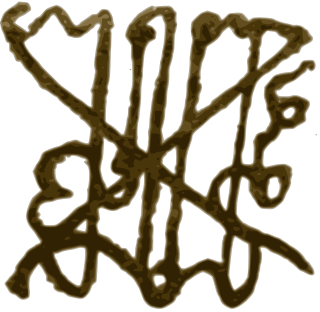 W
WRusudan was a daughter of a Circassian noble and a wife of Vakhtang VI, Hoseyn-Goli Khan, who ruled the Georgian kingdom of Kartli as a regent from 1703 to 1712 and a king from 1716 to 1724. She followed her husband in his exile to the Russian Empire, where she lived for the rest of her life.
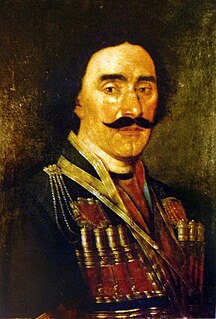 W
WSolomon I, "the Great",, of the Bagrationi Dynasty, was King of Imereti from 1752 to 1765 and again from 1767 until his death in 1784.
 W
WSolomon II, of the Bagrationi Dynasty, was the last King of Imereti from 1789 to 1790 and from 1792 until his deposition by the Imperial Russian government in 1810.
 W
WPrincess Tekle was a Georgian princess royal (batonishvili) and poet. She was a daughter of Heraclius II, the penultimate king of Kartli and Kakheti, the wife of Prince Vakhtang Orbeliani, and mother of the Georgian literati, Alexander and Vakhtang Orbeliani.
 W
WPrincess Ana Giorgis Asuli Bagration-Gruzinsky was a Georgian royal princess (batonishvili) of the Bagrationi dynasty.
 W
WMariam, also known as Maria in European sources, was the Queen of Georgia as the second wife and consort of the last King George XII of Georgia.
 W
WVakhtang also known as Almaskhan (ალმასხანი) was a Georgian prince royal (batonishvili) of the Bagrationi dynasty, born to King Heraclius II and Queen Darejan Dadiani. He distinguished himself in the war with Iran in 1795 and was then active in opposition to his half-brother George XII of Georgia and the newly established Russian administration in Georgia. In 1802 he surrendered to the Russian authorities and spent the rest of his life in St. Petersburg, working on an overview of Georgia's history. In Russia he was known as the tsarevich Vakhtang Irakliyevich Gruzinsky.
 W
WVakhtang VI, also known as Vakhtang the Scholar, Vakhtang the Lawgiver and Ḥosaynqolī Khan, was a Georgian monarch of the royal Bagrationi dynasty. He ruled the East Georgian Kingdom of Kartli as a vassal of Safavid Persia from 1716 to 1724. One of the most important and extraordinary statesman of early 18th-century Georgia, he is known as a notable legislator, scholar, critic, translator and poet. His reign was eventually terminated by the Ottoman invasion following the disintegration of Safavid Persia, which forced Vakhtang into exile in the Russian Empire. Vakhtang was unable to get the tsar's support for his kingdom and instead had to permanently stay with his northern neighbors for his own safety. On his way to a diplomatic mission sanctioned by Empress Anna, he fell ill and died in southern Russia in 1737, never reaching Georgia.
 W
WVakhushti (1696–1757) was a Georgian royal prince (batonishvili), geographer, historian and cartographer. His principal historical and geographic works, Description of the Kingdom of Georgia and the Geographical Atlas, were inscribed on UNESCO's Memory of the World Register in 2013.